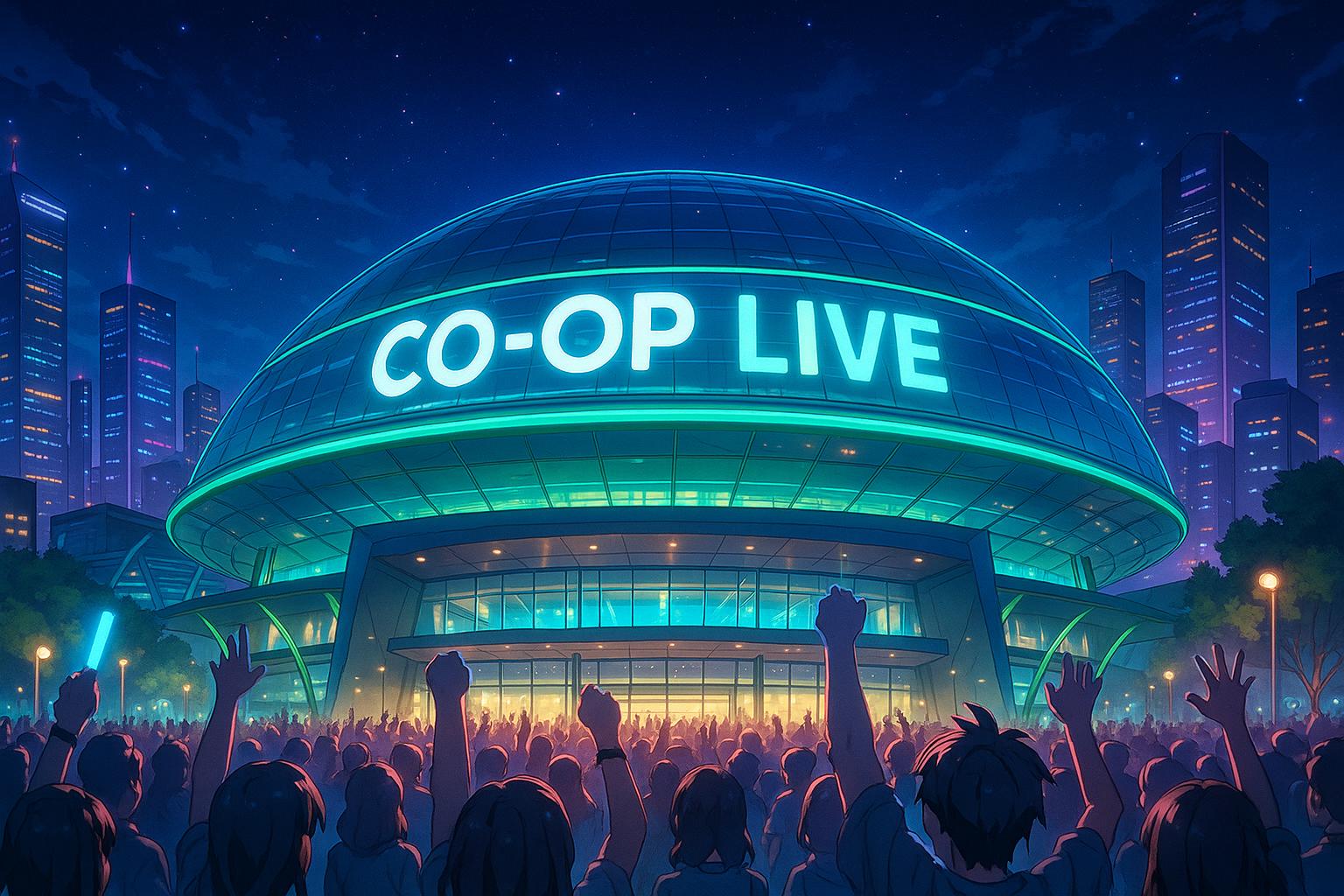Inside Co-op Live, anticipation is palpable as the final preparations are underway for a series of concerts featuring none other than Bruce Springsteen. This marks a significant moment, as the venue has recently been crowned the top arena in the UK and Europe after a stellar first year, during which it sold over one million tickets and generated £87 million in revenue. However, the path to this success was fraught with challenges, as Tim Leiweke, CEO of the Oak View Group which operates Co-op Live, can attest.
The arena's launch was notably tumultuous, enduring several postponements due to technical issues and safety concerns that led to the last-minute cancellation of high-profile shows, including those by comedian Peter Kay and pop star Olivia Rodrigo. These setbacks were labelled one of the most significant corporate communication disasters of the year, sparking questions about the project's viability. “Everyone was wondering whether we were going to get it open or not,” Leiweke stated, highlighting the atmosphere of uncertainty. Despite a hefty £450 million investment, the venue faced daunting hurdles including labour shortages and incomplete electrical systems, which pushed the opening date beyond its originally scheduled timeline.
Nevertheless, Leiweke's extensive experience in the entertainment industry proved invaluable. He had a track record of navigating similar crises, playing key roles in developing iconic venues like London’s O2 Arena. His ability to leverage personal relationships helped regain momentum during the difficult launch period. "Paul McCartney did us a favour and played two nights in December," Leiweke recalled, reflecting on the support he received from eminent artists who recognised the potential of the venue.
Co-op Live prides itself on being environmentally friendly and community-focused, operating entirely on electricity with a significant portion generated from solar panels. The arena also features food and water recycling initiatives and aims for zero waste to landfill. This commitment to sustainability resonates strongly with local stakeholders; nearly £200 million has been invested in the community throughout the arena's development, with 40% of suppliers located within five miles of the site. The local economy has already benefitted from an estimated £1.3 billion boost as concertgoers frequent Manchester's bars and restaurants.
As Leiweke looks to the future, his ambitions do not stop at Co-op Live. He aims to develop an even larger venue in London, citing a stark contrast between the number of major arenas in cities like New York and Los Angeles compared to the UK capital. His belief in the enduring appeal of high-quality entertainment spaces is unwavering, despite the challenges faced in Manchester. Referring to the occasional setbacks inherent in venue openings, he remarked, "When you get knocked down, get back up and keep on fighting." This resilience is a testament to the spirit with which Leiweke and his team have approached the creation of what they hope will be a world-class entertainment destination.
With the future looking brighter, Leiweke’s narrative suggests a return to form for Co-op Live, from chaotic beginnings to a position of acclaim. The arena's success also serves as a reminder of the power and perseverance required to bring ambitious visions to fruition—even amidst the uncertainties that pepper the journey of constructing a landmark venue.
Reference Map:
- Paragraph 1 – [1]
- Paragraph 2 – [1], [2], [3], [4]
- Paragraph 3 – [5]
- Paragraph 4 – [1], [6]
- Paragraph 5 – [1], [2], [4]
- Paragraph 6 – [1], [2], [4]
Source: Noah Wire Services
